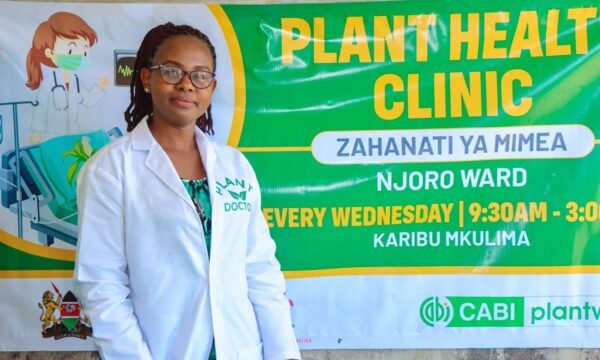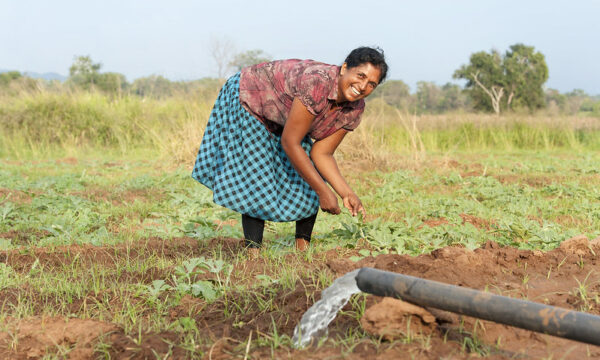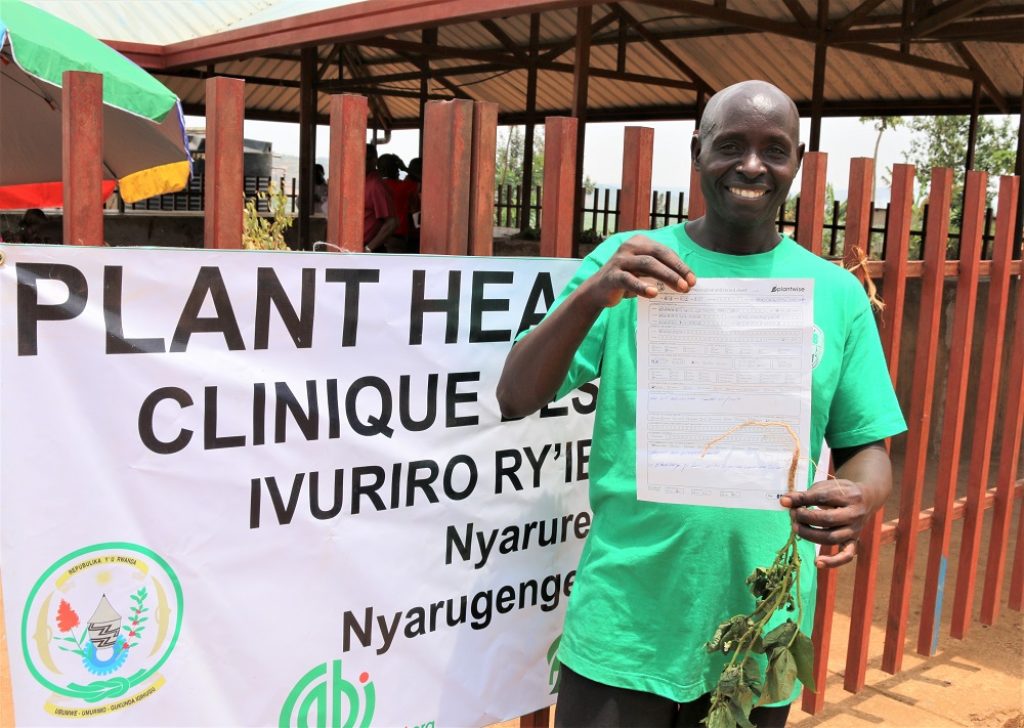
New research into the positive impacts the CABI-led Plantwise programme is having has revealed that its plant clinics have helped reduce incidences of extreme poverty in Rwanda by helping farmers fight crop-devastating pests and diseases.
Dr Justice Tambo, lead author of a paper in the journal World Development, has shown that the country’s network of plant clinics have helped maize farmers fight fall armyworm and maize stalk borer to realise yield and net income gains of 28 percent and 23 percent respectively.
Working with the Rwanda Agriculture and Animal Resources Development Board, Dr Tambo and colleagues from CABI’s centre in Kenya found that the advice given to farmers has ultimately helped realise a 5 percent reduction in the likelihood of a household falling below the extreme poverty line of $1.25 per day.
The results demonstrate that policies and programmes aimed at promoting and establishing farmers’ participation in plant clinics can contribute to increased agricultural productivity and poverty reduction.
Plantwise set up a sustainable network of over 4,000 plant clinics in 34 countries around the world. They are a meeting place where local agricultural advisory officers, known as plant doctors, help farmers struggling with plant pests and diseases. They provide diagnoses and management advice for any problem and any crop. In Rwanda there are currently more than 60 plant clinics and nearly 300 plant doctors operating.
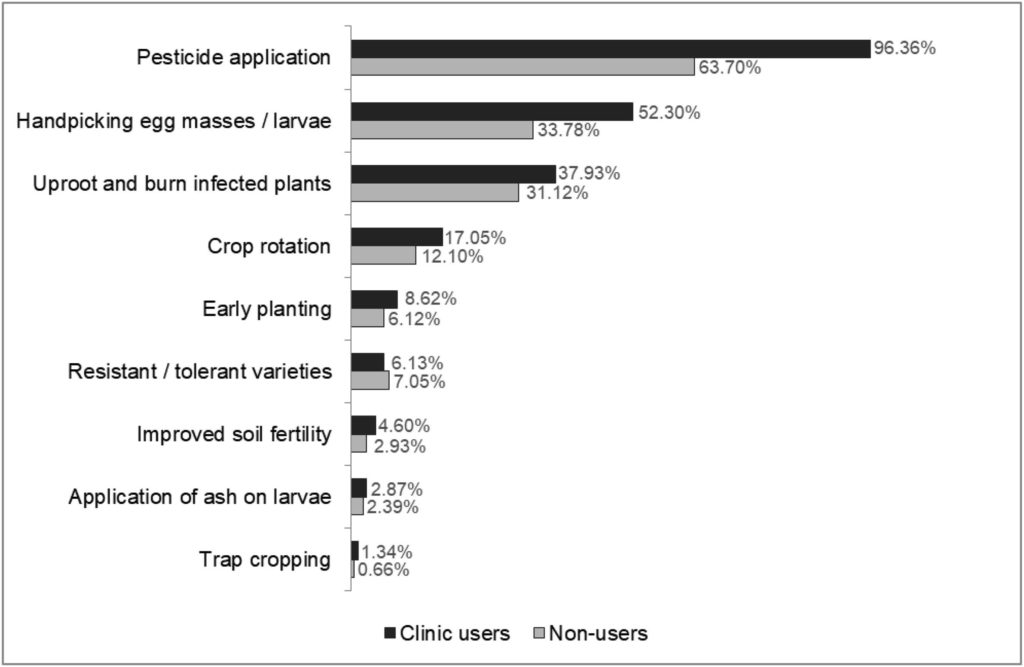
Dr Tambo said, “Around 40 percent of potential global crop production is lost each year to pests and diseases – putting significant strain on a country’s ability to provide national and contribute to the world’s food security.
“This study complements the increasing body of evidence showing that Plantwise is having a positive impact on farmers’ knowledge on plant health and adoption of sound practices as well as farmers’ yields and incomes.”
According to the 2018 State of Food Security and Nutrition in the World report, 1 person in every 9 in the world is undernourished with the situation in sub-Saharan Africa (SSA) being most acute with around 23 percent of the population estimated to be hungry or facing chronic food deprivation.
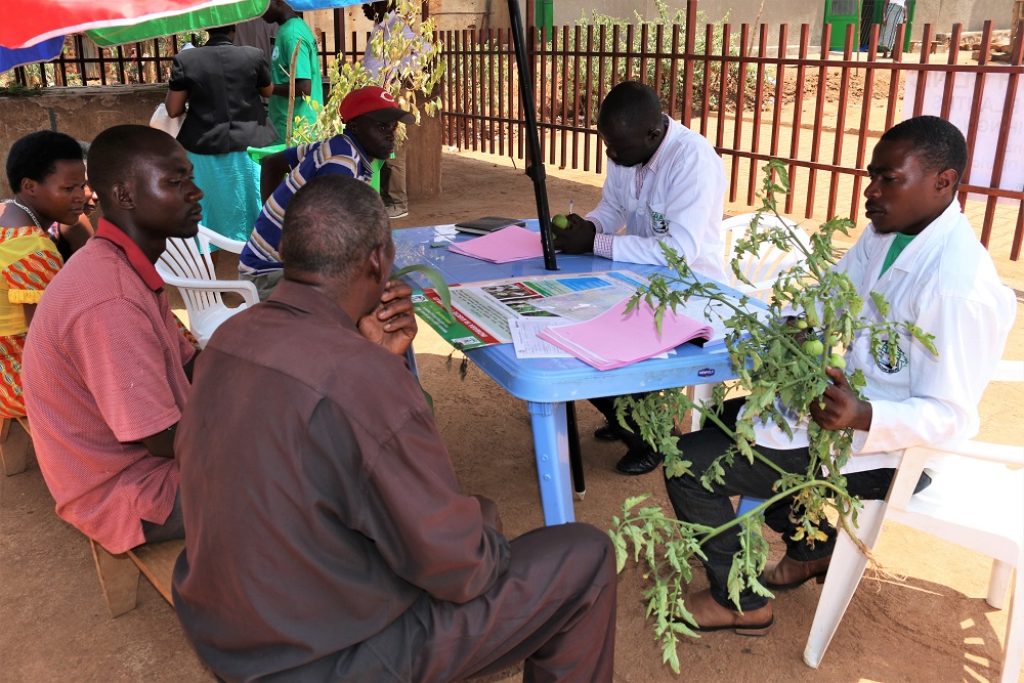
Dr Tambo added, “A lack of access to timely information on crop health problems is a major challenge to agricultural production and rural livelihoods in many developing countries including Rwanda and others in sub-Sharan Africa.
“Our research shows that in Rwanda plant clinics are contributing significantly to increased agricultural productivity by empowering farmers to adopt a range of Integrated Pest Management strategies to fight pests which impinge on local, national and global good security.”
Additional information
Full paper reference
Tambo, J.A., Uzayisenga, B., Mugambi, I., Bundi, M and Silvestri, S., ‘Plant clinics, farm performance and poverty alleviation: Panel data evidence from Rwanda,’ World Development, 2020, DOI: 10.10.16/j.worlddev.2020.104881
The paper is available as an open access document here: https://www.sciencedirect.com/science/article/pii/S0305750X20300073
To find out more success stories from Plantwise please read ‘Plantwise plant clinics deliver 3:1 benefit-cost ratio in Kenya’ and ‘Plantwise impact – what have the last eight years taught us?’
Related News & Blogs
How plant clinics are strengthening crop health services in Bangladesh
When the first-ever plant clinic in Bangladesh opened in Dhaka in 2013, it initially faced a lack of interest due to its novelty and limited awareness among farmers. However, it went on to expand, providing advice to over 17,000 farmers and led to the…
2 July 2025



